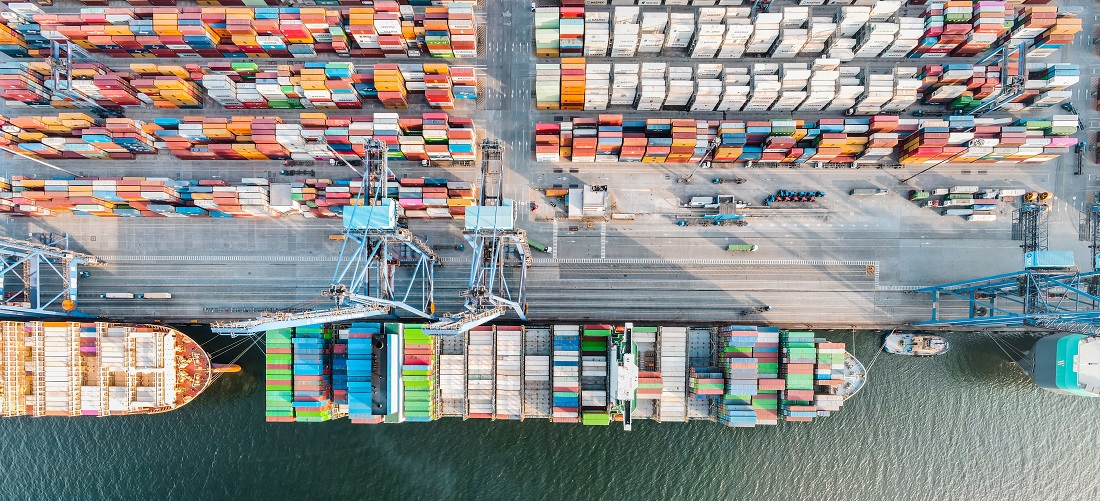
DataLiner: newest data reveal strong rebound in July container exports
Sep, 01, 2023 Posted by Gabriel MalheirosWeek 202336
Data recently disclosed by Datamar’s Business Intelligence division reveals that Brazilian exports in containers grew by 7.3% in July compared to the same month in 2022. A total of 24,111 TEUs were shipped abroad in the seventh month of this year, marking the best monthly result in the past five years. However, despite this positive trend, year-to-date container exports (January to July) remain 5.3% lower than the same period last year.
Here’s a historical overview of Brazilian container exports according to DataLiner:
Containerized exports (month-on-month) | Jan 2019 – Jul 2023 | TEU
Source: DataLiner (click here to request a demo)
Year-to-date Container Exports | 2019-2023 | TEU
Source: DataLiner (click here to request a demo)
Meat products, especially poultry, stood out as the most exported cargo via containers in the first seven months of the year, with volumes 4.1% higher than the same period in 2022.
Sugar exports in containers also saw a substantial increase, rising by 87.4%. Conversely, exports of wood dropped by 17.4%, and plastic exports fell by 17.05% over the same period.
Parallelly, China emerged as the leading destination for Brazilian containerized cargo in the first seven months of the year, with 245,722 TEUs, reflecting a 2.5% growth compared to the same period in 2022. Meanwhile, container shipments to the United States declined by 15.7% year-on-year, while Mexico, the third destination for Brazilian containers, received a 7.7% larger volume.
Imports
Brazilian imports in containers showed slight growth in July (+0.80%) compared to the same month in 2022. However, year-to-date imports (January to July) grew by 7.2%. See more below:
Imports in Containers (month-on-month) | Jan 2019 – Jul 2023 | TEU
Source: DataLiner (click here to request a demo)
Year-to-date Imports in Containers | Jan-Jul | TEU
Source: DataLiner (click here to request a demo)
Among the highlights in cargo imports, plastic surged by 24.8% in the first seven months of the year compared to the same period last year. Imports of reactors, boilers, and machinery increased by 18.1%, while imports of electrical appliances and materials grew by 20.5% YoY.
Regarding the origin of imported cargo, China sent 16.7% more goods in containers to Brazil than it did a year ago, and the United States dispatched a 16.1% larger volume.
Plate Insights
Looking at the other countries on the East Coast of South America, Argentina recorded a 13.42% decrease in exports in July compared to July 2022. Year-to-date, there was an 8.8% decline compared to the January-to-July period in 2022.
In contrast, Argentina took in a 6.1% larger volume in July than in July 2022; still, in year-to-date terms, the country saw a 12% decrease compared to the January-to-July period in 2022.
Uruguay’s exports in containers also dropped in July by 11.2% compared to July 2022, with a 10.7% decline in the January-to-July comparison for 2023.
However, Uruguayan imports showed positive performance, increasing by 1.48% in July compared to July 2022 and rising by 3.4% year-to-date compared to the January-to-July period in 2022.
Low Freight Rates and Positive Prospects
According to the latest Platts report by S&P Global on August 25, the freight rate for the PCR31 route – from Asia to the East Coast of South America – was assessed at $2,000/FEU, a drop of over 18% from the previous week. Despite this, prospects indicate economic growth with the approaching holiday season (traditionally witnessing increased imports in August, September, and October in preparation for year-end shopping).
Additionally, data released by the Brazilian Institute of Geography and Statistics (IBGE) on September 1 revealed that Brazil’s economy grew by 0.9% in the second quarter of this year compared to the first three months. The Gross Domestic Product (GDP) totaled R$2.651 trillion.
In comparison to the same quarter last year, the Brazilian economy advanced by 3.4%. The GDP has seen a 3.2% increase over the past 12 months, with a 3.7% accumulated growth in the first half of the year.
The 0.9% growth in the second quarter of 2023, compared to the immediate previous quarter, marks the eighth consecutive increase in this type of comparison. However, it also indicates a slowdown, as the first quarter of the year saw a 1.8% growth (revised by IBGE) compared to the last quarter of 2022.
The data positions Brazil’s economy 7.4% above the pre-pandemic level and marks a historic high point for the country.
This article included information by Agência Brasil
-
Grains
Nov, 13, 2019
0
IBGE estimates 1% fall in 2020 grain harvest
-
Meat
Aug, 26, 2021
0
Brazil shipped 15% more beef to the Arab countries this year
-
Grains
Aug, 10, 2021
0
Cargonave sees increase in Brazil’s soybean exports in August
-
Ports and Terminals
Nov, 18, 2024
0
BNDES Approves R$ 373.46 Million for Reconstruction of Terminal at the Port of Rio Grande

